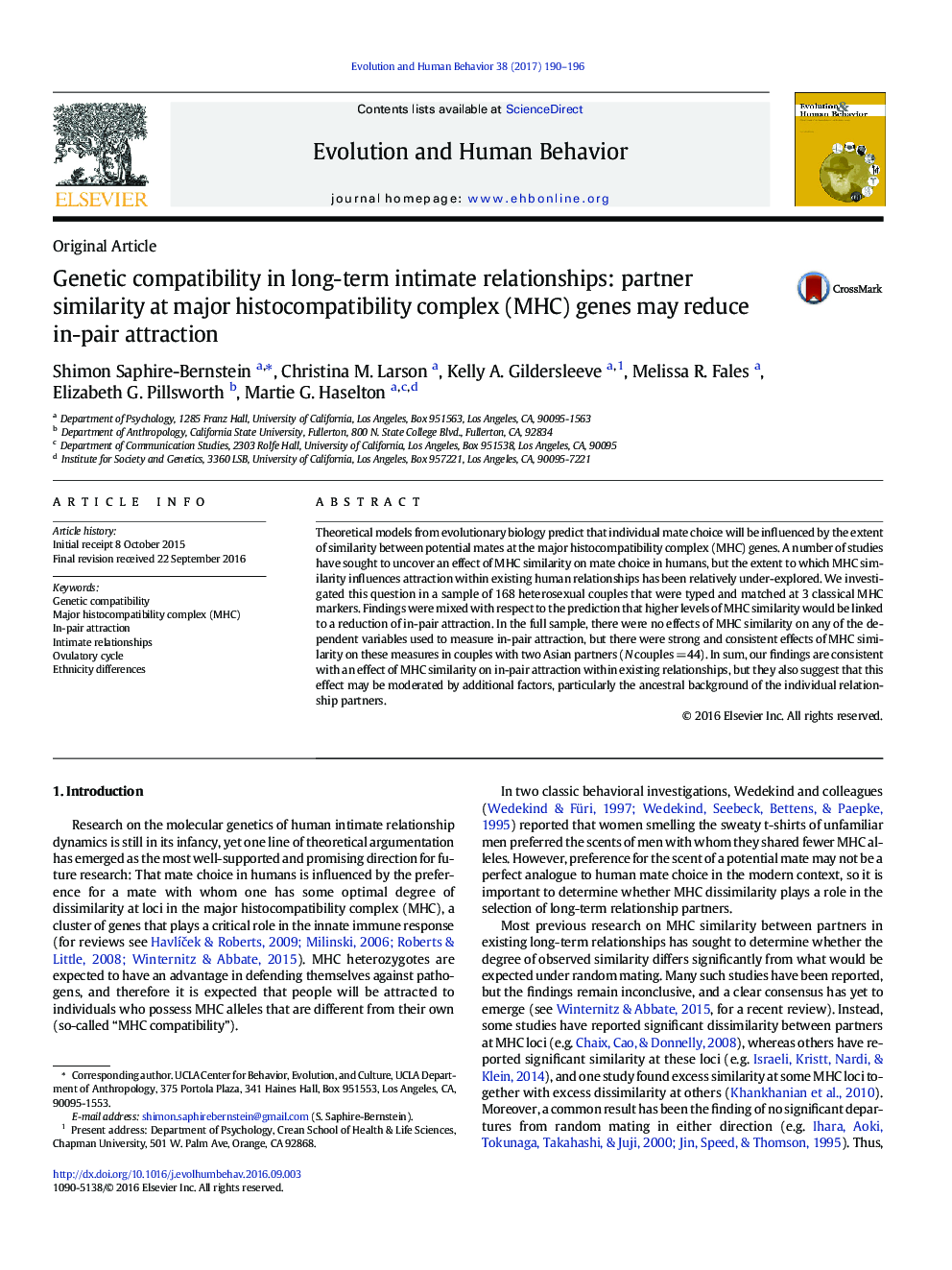| Article ID | Journal | Published Year | Pages | File Type |
|---|---|---|---|---|
| 5044869 | Evolution and Human Behavior | 2017 | 7 Pages |
Theoretical models from evolutionary biology predict that individual mate choice will be influenced by the extent of similarity between potential mates at the major histocompatibility complex (MHC) genes. A number of studies have sought to uncover an effect of MHC similarity on mate choice in humans, but the extent to which MHC similarity influences attraction within existing human relationships has been relatively under-explored. We investigated this question in a sample of 168 heterosexual couples that were typed and matched at 3 classical MHC markers. Findings were mixed with respect to the prediction that higher levels of MHC similarity would be linked to a reduction of in-pair attraction. In the full sample, there were no effects of MHC similarity on any of the dependent variables used to measure in-pair attraction, but there were strong and consistent effects of MHC similarity on these measures in couples with two Asian partners (N couples =44). In sum, our findings are consistent with an effect of MHC similarity on in-pair attraction within existing relationships, but they also suggest that this effect may be moderated by additional factors, particularly the ancestral background of the individual relationship partners.
